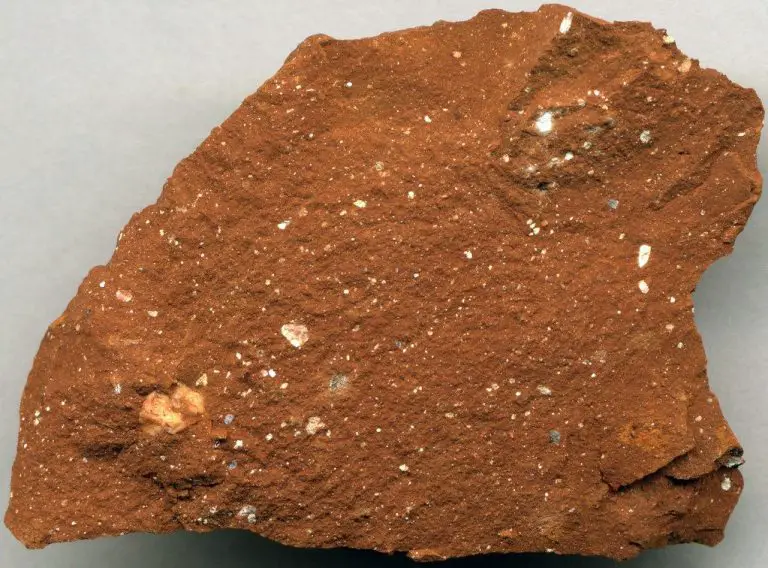Why Does Magic Water Work?
“Magic water” refers to alkaline water, which has become increasingly popular in recent years. Alkaline water is water that has been ionized to increase its pH level and make it more basic or alkaline. The “magic” part refers to the health claims surrounding alkaline water, with proponents stating that it provides a wide range of benefits compared to regular drinking water.
The popularity and market for alkaline water has grown rapidly, especially in the last 5-10 years. In the United States alone, sales of alkaline water are expected to reach $1.3 billion by 2023, up from just $427 million in 2015. Major retailers like Costco and Walmart have started selling their own brands of alkaline water due to increasing consumer demand. Pro athletes, celebrities, and health gurus have also promoted alkaline water, further driving its popularity.
Proposed Benefits
Those who recommend drinking magic water claim it provides a wide range of health benefits. Some of the main benefits proposed include:
Improved hydration – Magic water is said to hydrate the body better than regular water due to its higher pH (Source). Proponents believe it helps the body absorb and retain more water.
Detoxification – Alkaline water is believed to neutralize acids and flush toxins from the body by optimizing pH levels (Source). Some claim this leads to clearer skin, reduced inflammation, and improved immunity.
Increased energy – Hydration from alkaline water may boost energy levels and mental clarity. The electrolytes are also said to enhance energy and endurance.
Better digestion – Magic water is thought to aid digestion, prevent acid reflux, and have an alkalizing effect on the body that optimizes gut health.
Relief of pain and inflammation – The alkaline minerals in the water may help counteract acid buildup that contributes to joint pain, arthritis, headaches, and other inflammatory issues.
Slowed aging – The antioxidant properties of alkaline water are said to reduce free radical damage and slow the aging process. Some believe it can extend lifespan.
Alkalinity Explained
Alkalinity refers to the pH level of water. The pH scale ranges from 0 to 14, with 7 representing neutral. Water with a pH of less than 7 is considered acidic, while water with a pH greater than 7 is considered alkaline or basic.
The alkalinity of water is determined by the concentration of alkaline minerals and compounds in it, especially carbonates, bicarbonates, and hydroxides. The higher the level of these compounds, the more alkaline the water will be.
Advocates of alkaline water believe that drinking water with a high pH can neutralize acid in the body and provide health benefits. However, the body tightly regulates its pH balance through homeostasis. The stomach is especially acidic, with gastric juice having a pH between 1.5-3.5. This acidity is needed to break down food and kill pathogens.[1]
While alkaline water may have direct effects on acid reflux due to its neutralizing effect in the esophagus, there is little evidence that it produces bodywide changes in pH levels or provides other health benefits. More research is still needed on alkaline water and health outcomes.[2]
Some sources recommend alkaline water within the pH range of 8 to 9 for drinking. However, others argue that levels above 8 may have an unpleasant taste and produce mineral deposits in water appliances.[3]
Ultimately, while proponents believe strongly in the benefits of alkaline water, the existing research is still limited. As with any supplement, it’s best to speak with a healthcare provider before significantly altering your water intake.
[1] https://www.healthline.com/health/food-nutrition/alkaline-water-benefits-risks
[2] https://www.webmd.com/diet/what-is-alkaline-water
[3] https://www.henryford.com/blog/2018/08/alkaline-water-help-hype
Studies on Alkaline Water
Several scientific studies have examined the potential health benefits of alkaline water. A 2018 study published in the Journal of Clinical Biochemistry and Nutrition found that drinking alkaline electrolyzed water containing hydrogen daily for 8 weeks helped improve antioxidant levels in adults, which may provide health benefits related to aging and disease prevention (source). However, the study was small and short-term.
Another study published in the Journal of Geriatric Cardiology in 2016 looked at alkaline and electrolyzed water in mice. The results suggested alkaline water could have an anti-aging effect by reducing oxidative stress and free radical levels (source). But more research is still needed, particularly large-scale human studies, to confirm the potential health benefits in people.
Overall, while some early research shows promise, there is currently limited scientific evidence directly demonstrating significant health benefits associated specifically with alkaline water. More high-quality, long-term studies are needed.
Anecdotal Evidence
Many people who drink alkaline water report positive health effects, though these reports are anecdotal. Some examples of positive anecdotes include:
Mary S. says drinking alkaline water helped relieve her chronic acid reflux and heartburn symptoms: “Within a week of drinking alkaline water, my reflux was gone.” (Source)
James R. states alkaline water improved his energy levels and eased his joint pain: “After starting alkaline water, my morning fatigue disappeared and my knees don’t ache like before.” (Source)
Jennifer K. credits alkaline water with clearing up her skin issues: “I struggled with acne for years until I tried alkaline water. Now my skin is smooth and clear.” (Source)
While anecdotal, these reports suggest potential benefits of alkaline water for some individuals. More research is still needed on the effects of alkaline water.
Criticisms and Concerns
There are some common criticisms and concerns about drinking alkaline water. Some claim that alkaline water provides no real health benefits and is simply a marketing gimmick. Others argue that altering the pH of water is unnatural and could potentially disrupt the body’s natural pH balance. Additionally, there are concerns about the safety of long-term consumption of highly alkaline water.
One major criticism is that there is insufficient scientific evidence to support many of the purported health benefits of alkaline water [1]. While alkaline water may help neutralize stomach acid and relieve acid reflux for some, the idea that it can cure disease or slow aging is not well-supported. More research is still needed on the effects of alkaline water on specific health conditions.
Some sources also caution that alkaline water could disrupt the body’s natural pH levels over time, potentially leading to metabolic alkalosis [2]. This condition causes the blood to become too alkaline, which can produce symptoms like nausea, hand tremors, and muscle twitching. However, this side effect seems mainly associated with drinking very high pH water (9.5 or above) for extended periods.
Additionally, there are concerns that alkaline water filtration systems may not remove other harmful contaminants like heavy metals, so the purity and safety of the water source should still be verified [3]. Overall, more research is needed on the long-term safety and effects of regular alkaline water consumption.
Safety Considerations
There are a few potential safety issues to be aware of with alkaline water:
High alkalinity may lead to digestive issues in some people. Drinking water with a pH over 8.5 may irritate the lining of the stomach and esophagus (source).
Alkaline water could impact nutrient absorption. The high pH may interfere with proper absorption of nutrients like iron, zinc and calcium in the intestines (source).
Kidney problems may be exacerbated. People with kidney disease are often advised to avoid alkaline water since it may increase mineral buildup in the kidneys (source).
Skin irritation is possible. The alkalinity can dry out skin and trigger itching or rashes in some cases.
As with any supplement, it’s best to consult your doctor before regularly consuming alkaline water, especially if you have any underlying health conditions.
Recommendations for Use
When used appropriately, alkaline water can be a safe and potentially beneficial addition to a healthy diet and lifestyle. Here are some recommendations for safe and effective use of alkaline water:
Alkaline water is generally safe when consumed in moderation. The ideal pH for drinking water is between 7.5-9.5. Avoid drinking water with a pH higher than 9.5 as it may have negative effects (1).
Start slowly if you’re new to alkaline water. Begin by drinking 1-2 glasses per day and gradually increase your intake to avoid detox symptoms (2). Listen to your body and discontinue use if you experience adverse effects.
Alkaline water is not a substitute for standard medical treatments. Consult your doctor before using it as a complementary therapy for any health condition.
Maintain a balanced diet high in fruits and vegetables. The minerals in alkaline water can complement a nutritious diet but should not replace eating whole, unprocessed foods.
Stay hydrated by drinking when thirsty. Alkaline water can contribute to daily fluid needs but should not be forced beyond thirst.
Monitor your intake if you have kidney disease, heart disease, or are on a sodium-restricted diet, as alkaline water contains sodium. Consult your doctor if you have any concerns (3).
Look for certified alkaline water and trusted brands. Verify pH levels and quality standards before purchasing.
As with any supplement, it’s wise to proceed with caution. Talk to a healthcare provider to determine if alkaline water may be beneficial for your individual health needs.
(1) https://www.healthline.com/health/food-nutrition/alkaline-water-benefits-risks
(2) https://www.arthritis.org/health-wellness/healthy-living/nutrition/alkaline-water-benefits
The Bottom Line
Overall, the evidence on alkaline water is limited and inconclusive. While some small studies show potential benefits like hydration and antioxidant effects, larger and longer-term human studies are needed to validate these findings. Anecdotal evidence suggests alkaline water may help with acid reflux, immune function, and energy levels, but placebo-controlled trials are lacking.
Critically reviewing the evidence, a systematic review published in the International Journal of Preventative Medicine found alkaline water may have benefits related to antioxidant effects, acid-base balance, and hydration status. However, the authors note the included studies have limitations like small sample sizes, lack of blinding and placebos, and short follow-up periods (Magro, 2016).
On the other hand, some sources argue the touted benefits of alkaline water are overstated. A literature review in the Journal of the American Society of Nephrology concluded alkaline water products are unlikely to benefit kidney function or slow the progression of kidney disease (Waikar & Curhan, 2019).
Overall, more high-quality clinical research is needed on larger populations over longer periods to substantiate any health claims around alkaline water. Until then, views remain mixed on efficacy and safety.
Expert Opinions
Alkaline water has garnered a range of expert opinions. According to Dr. Elizabeth Trattner, a naturopathic doctor and acupuncturist, “When it comes to alkalinity I always recommend eating an alkaline-based diet or taking natural supplements that don’t dramatically alter the body’s delicate pH balance” (Alkaline Water: Benefits, Side Effects, and Dangers).
Registered dietitian Andy Bellatti advises, “Save your money. Drink plenty of well-hydrated fruits and vegetables which will provide alkaline-forming benefits – and a host of protective phytonutrients to boot” (Forbes).
Dr. Donald Hensrud, medical director of the Mayo Clinic Healthy Living Program, states “there’s not enough research to show that the pH in these waters is high enough to provide the claimed benefits” (Alkaline water: Better than plain water?).





